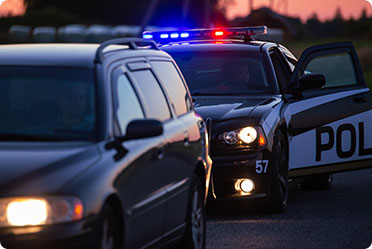
Does It Matter Who Pulls You Over?
In NJ DWIs, the arrest location has a significant impact on how things take shape. The same is true of what investigating agency it is that pulls you over.
New Jersey State Police, local police departments, sheriff’s departments, and bridge or port authorities all bring varying levels of training, resources, and experience to the table, and this directly affects how cases unfold. NJ DWI arrest location impact
State Police
Generally speaking, state troopers are the best trained when it comes to DWI detection. In addition to their formal instruction, most go through a specialized five-day training course that exclusively focuses on DWI detection and standardized field sobriety testing.
Many troopers also go further, completing ARIDE (Advanced Roadside Impaired Driving Enforcement) or DRE (Drug Recognition Expert) certification, both of which focus on identifying drug impairment. This training makes state police investigations more methodical but also more challenging for the defense.
Local Police
Twenty years ago, few local officers received formal DWI training. That’s changed. More and more local departments are investing in proper instruction for their officers, possibly in response to better-trained defense attorneys and the growing use of expert witnesses.
Still, training quality varies by department. Some towns prioritize sending officers to advanced DWI programs, while others allocate fewer resources. If a local officer has only learned on the job or through informal peer training, there may be opportunities to challenge their arrest procedures or observations.
Sheriff’s Departments
Sheriff’s deputies in New Jersey tend to be less trained in standardized field sobriety testing and DWI detection.
In many cases, they’ve learned procedures through informal, on-the-job coaching rather than structured training programs. That makes DWI cases involving sheriff’s departments easier to defend, particularly if their reports or testimony reveal gaps in knowledge or inconsistent protocol.
Bridge And Port Authorities
Agencies like the Delaware River Port Authority, which covers South Jersey bridge crossings, can be surprisingly well-trained. In contrast, smaller or less prominent authorities may lack DWI-specific acumen, presenting more opportunities for defense counsel to challenge the integrity of the investigation.
Location And Your Likelihood Of Being Pulled Over
Certain roadways become hotspots for law enforcement, especially during scheduled operations or when specific law enforcement units are dispatched for high-visibility traffic patrols. One night, you might see a cluster of troopers working speed traps and registration checks. The next day, the same stretch of road might be completely clear.
It often comes down to planned enforcement campaigns, which may target certain routes based on accident data, local complaints, or proximity to bars and entertainment venues.
Holiday Weekends And DWI Crackdowns
You can generally expect significantly heightened enforcement during holidays and special weekends, especially New Year’s Eve, Fourth of July, and Labor Day. State police presence ramps up dramatically during these periods, and checkpoints are noticeably more common.
At the local level, police departments often monitor areas near bars, clubs, and known trouble spots. In smaller jurisdictions with low crime rates, DWI enforcement becomes a primary focus, especially on weekend nights when there’s little else demanding police attention.
When it comes to DWI charges, the arresting agency, the officer’s training, and even the time and location of your stop can play a central role in your defense. An experienced attorney knows how to dissect these variables and, more importantly, knows how to use them to your advantage.
Still Have Questions? Ready To Get Started?
For more information on NJ DWI arrest location and impacts, an initial consultation is your next best step. Get the information and legal answers you are seeking by calling (856) 429-2323 today.
